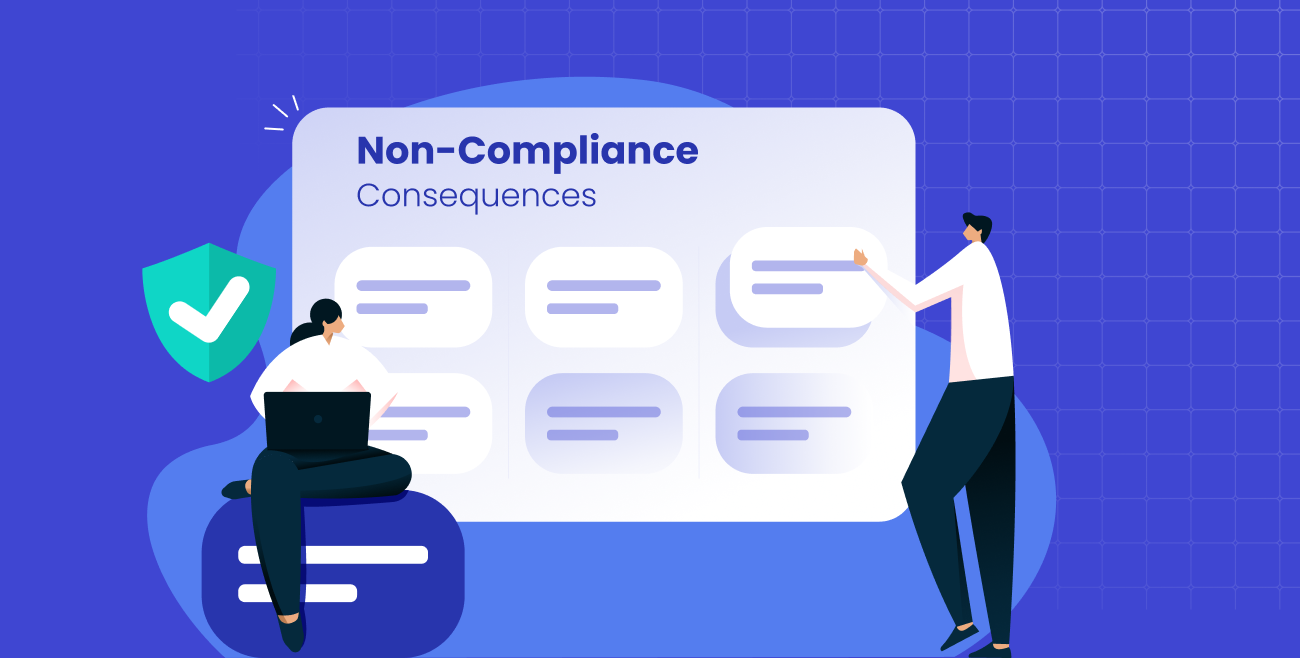
As a non-emergency management transportation (NEMT) provider, ensuring compliance is an indispensable aspect of your daily operations.
The repercussions of non-compliance can be severe, impacting both your financial stability and legal standing.
This article highlights the importance of adhering to regulations, recognizes the difference between ordinary and gross negligence, and provides actionable insights to safeguard your NEMT business.
What is compliance in NEMT?
In the NEMT industry, compliance refers to the adherence to a set of rules, regulations, and standards established by authorities to ensure the safe and ethical operation of NEMT services.
These regulations are put in place to protect the interests of patients, providers, and the healthcare system.
To maintain compliance, NEMT providers must strictly follow a range of specific guidelines:
- NEMT providers must ensure patients’ timely and safe transportation to medical appointments.
- They must properly secure patients in the vehicle to prevent injuries during transit.
- They must maintain accurate records of trips, ensure that services are billed correctly, and abide by privacy regulations like the Health Insurance Portability and Accountability Act (HIPPA).
Do More with Less
Handle more trips with fewer dispatchers on your payroll with Tobi.
Start for FreeWho should comply?
Compliance is a responsibility that every individual within an NEMT organization must fulfill, regardless of their role.
Having robust monitoring processes in place and regularly training your staff can help your transportation business stay compliant.
To illustrate this, let’s consider a few examples.
Compliance for NEMT Dispatchers
If your dispatcher is responsible for routing NEMT vehicles, their decisions impact the efficiency of your operation and its compliance.
Routing a vehicle through an unsafe area or failing to consider a patient’s specific needs can lead to challenges.
It is your responsibility as the business owner to have processes in place to overcome such challenges and ensure that patients reach their appointments safely and on time.
Compliance for NEMT Drivers
On the other hand, your driver’s primary duty is to provide safe transportation.
Neglecting to secure a patient properly during transit may seem like a minor oversight, but it can result in compliance violations. More importantly, it poses a risk to the patient’s well-being.
Therefore, compliance is the responsibility of every individual in an NEMT organization, and everyone must take it seriously to ensure the well-being of the patients and the organization’s success.
What is gross negligence?
Gross negligence is a legal term used across numerous industries.
It is a severe violation of the rules and regulations. For NEMT business owners, it can result in financial penalties, loss of contract, and damage to the reputation of your business.
It involves a deliberate disregard for the safety or well-being of another person. Committing Medicaid fraud also falls under its purview.
Other acts of gross negligence could include:
- Falsifying NEMT records to claim reimbursement for services that were not provided or to cover up a compliance violation.
- Inaccurate billing for NEMT service for people not eligible, providing unauthorized rides, and overbilling.
- Transporting clients in an unsafe or unhealthy condition, such as using a poorly maintained vehicle or one unsuitable for the client’s medical needs.
- Using NEMT ambulettes that do not conform to ADA regulations.
This is not a comprehensive list, but just a few examples of gross negligence and non-compliance within an organization.
The Consequences of Non-Compliance
As an NEMT provider, you must understand the ramifications of non-compliance within your industry, as it can critically impact your business.
Financial Impact
You may face fines and penalties, and their severity varies based on the nature and extent of your non-compliance.
Even minor infractions can result in financial sanctions, while major breaches can lead to substantial penalties.
The loss of reimbursement for services you’ve provided can significantly decrease your financial stability.
The denial of reimbursement for the services you’ve rendered can substantially impact your revenue stream, which can be especially challenging for smaller NEMT providers.
Loss of Business
The potential loss of contracts with insurers or government programs is perhaps one of the most far-reaching implications of compliance audits.
When your compliance issues come to light, these entities may terminate their agreements with you and blacklist you and/or your drivers. This can disrupt your business operations and make it even more challenging to continue serving your patients while maintaining financial viability.
Legal Consequences
Lawsuits by patients who have suffered harm can result in substantial damages awarded to the aggrieved parties.
Even a single verdict can pose a significant threat to your financial well-being.
In fraudulent activities or abusive practices, you may even face criminal charges. Legal authorities can investigate and prosecute, potentially leading to severe penalties, legal expenses, reputational damage, or imprisonment.
How to ensure compliance?
As an NEMT provider, it’s essential to comply with the regulations and acts that govern the industry. In this regard, there are some practical tips that can help NEMT providers stay on the right track.
Stay Informed
Keep yourself and your team up to date with ever-evolving NEMT regulations.
Invest in comprehensive training programs for your staff so they understand the intricacies of compliance and the potential consequences of non-compliance.
Set up systems to receive and disseminate regulatory updates promptly so you’re always aware of changes that may impact your operations.
Familiarize Yourself with Key Regulations and Acts
NEMT providers should be familiar with the basic regulations and acts governing the industry.
These keep on changing, so be sure to check it often.
HIPAA
HIPAA was enacted in 1996 and aimed to improve the efficiency of the healthcare system and safeguard patient privacy.
Compliance with HIPAA is essential for protecting patient privacy, as it establishes standards for safeguarding individually identifiable health information.
Patient Safety and Quality Improvement Act (PSQIA)
Established in 2005, PSQIA creates a voluntary reporting system to enhance data available for assessing and resolving patient safety and healthcare quality issues.
It provides federal privilege and confidentiality protections for patient safety information and authorizes the Department of Health and Human Services to list patient safety organizations (PSOs) to collect and review this information.
Health Information Technology for Economic and Clinical Health (HITECH) Act
Enacted in 2009, the HITECH Act addresses privacy and security concerns in the electronic transmission of health information.
It enforces HIPAA rules and establishes categories of violations with corresponding tiers of penalty amounts.
Affordable Care Act (ACA)
Enacted in March 2010, the ACA is a comprehensive healthcare reform law that aims to make health insurance affordable, expand Medicaid, and support innovative medical care delivery methods to lower healthcare costs.
Anti-Kickback Statute and Stark Law
Medical providers are prohibited by law from engaging in certain financial relationships and offering kickbacks in exchange for patient referrals.
This ensures that financial incentives do not interfere with patient care, which is the top priority.
Knowing how these laws affect you, your business, and your relationship with other healthcare service providers is crucial to maintaining the integrity of your business.
Tobi Is the Solution You Need
If you’re looking for a software solution for NEMT that can simplify procedures and help you stay compliant, Tobi is the answer.
It takes care of the complex processes, freeing you from the burden of managing them.
Don’t let compliance become a costly issue. Act now and discover the benefits Tobi can offer your NEMT business.
Sign up for Tobi and secure the future of your NEMT operations.

